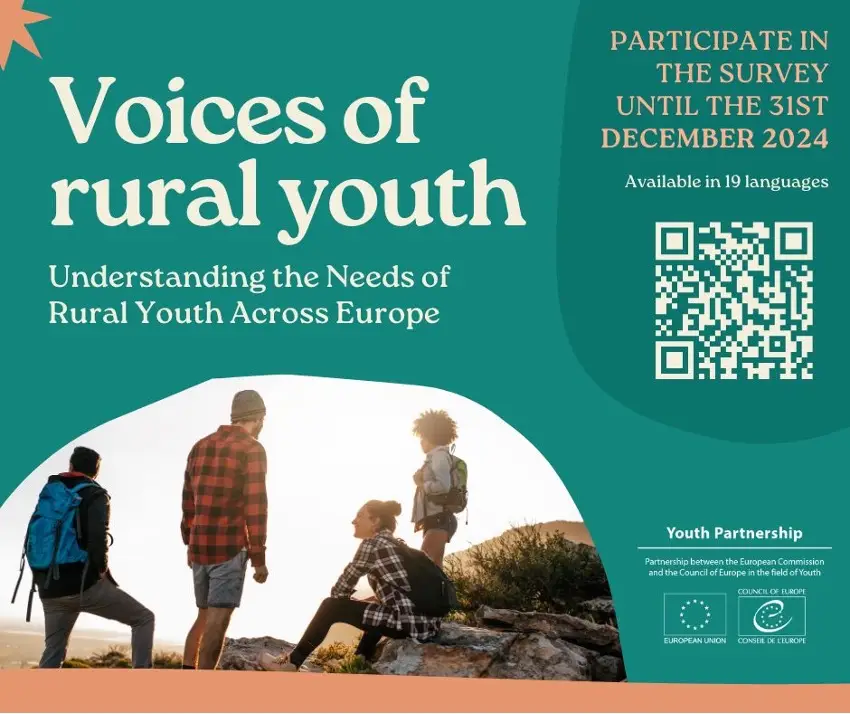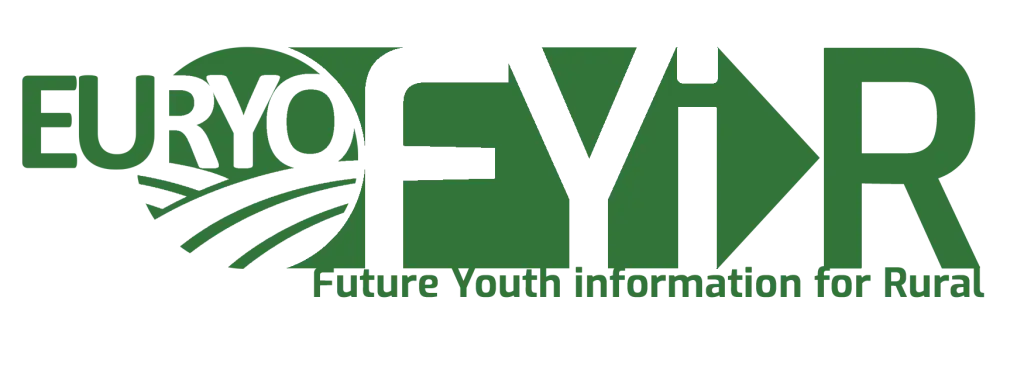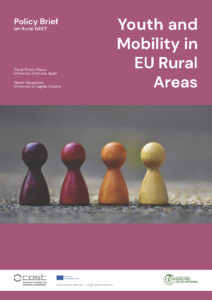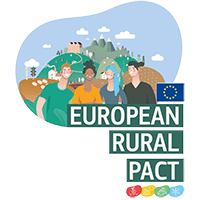Youth Partnership Survey
SPREAD THE WORD!
An on-going study co-led by EURYO members
Francisco Simões (Iscte, Portugal) and Antonella Rocca (Parthenope University of Naples, Italy) are co-leading a study on rural youth for the Youth Partnership, a think-tank from the Council of Europe and the European Commission on youth policies. The study has now opened a survey for rural young people.
Please, help us to spread the word, sending the survey link to your colleagues and contact.

EURYO awarded a COST Innovators Grant (CIG)

EURYO awarded a COST Innovators Grant (CIG)
![]()
New paper published: Becoming a Young Farmer in the Digital Age: An Island Perspective
We are pleased to announce that a new paper supported under our call for collaborative publications has just been published in the journal Rural Sociology.
https://onlinelibrary.wiley.com/doi/full/10.1111/ruso.12400
Becoming a Young Farmer in the Digital Age: An Island Perspective
Abstract
This study investigates the career construction paths of young farmers and aims to contribute to the literature on the “young farmer problem.” Of particular relevance is this study’s focus on the potential of islands as a new career landscape in the digital age. Young farmers’ subjective experiences toward careers were analyzed based on narrative interviews, quantitative surveys and expert interviews from two EU islands: Crete and the Azores. Firstly, the study provides insights on the behavioral and cognitive dimensions of the career construction model by identifying followed career paths. Secondly, we turn our focus to the role of digital communications in career construction and, thirdly, the study examines the geographical dimension of the model. We find that involvement with farming entails complex career patterns that evolve into passion. Whether their involvement follows planned or unplanned paths, protean career attitudes, desire to experiment, and a strong sense of career self-concept play significant roles in shaping the career narratives. “Experience” and “management” dimensions of online communication drive the construction of careers as a part of a professional identity mechanism. Our results reveal that the “island effect” (maintaining a part-time farming culture) plays a role in cohesive singular and multiple career self-concepts.
![]()
New paper published: Rapid Evidence Assessment Protocol for the Meta-Analysis of Initiatives, Interventions and Programmes That Target Rural NEETs
We are pleased to announce that a second paper supported under our call for collaborative publications has just been published in the journal Social Sciences. The team was led by Paul Flynn and involved other members such as Vesela Radovic, Alen Mujcinovic, Štefan Bojnec and Francisco Simoes, as well as Veronica McCauley. Congratulations to all the team. Check the link below:
https://www.mdpi.com/2076-0760/11/8/362
Rapid Evidence Assessment Protocol for the Meta-Analysis of Initiatives, Interventions and Programmes That Target Rural NEETs
Abstract
![]()
SPRING 2022 CALLS ARE NOW OPEN
SPRING 2022 CALLS ARE NOW OPEN
JOIN AND PARTCIPATE IN OUR CALLS

If you are a member of our Action or not, you can join us to our SPRING’22 CALLS.
You can see bellow the links to each call with all the information of how to participate. You will be able to publish papers, attend online and face-to-face conferences, visit some institution for a short research, organice events to disseminate our Action and more!
![]()
Our COST Action CA18213 will participate as speaker in the next Track-IN kick-off conference
Our COST Action CA18213 will participate as speaker in the next Track-IN kick-off conference
Rural NEETs transition to the labour market: The role of Public Employment Services
ISCTE – Instituto Universitário de Lisboa
Cidade Universitária de Lisboa – Av. das Forças Armadas, 1649-026 Lisboa, Portugal
Our colleagues from the EEA Grant Project “Track-IN: Public employment services tracking effectiness supporting rural NEETs” will participate have their first Kick-off conference next 4 and 5 of April 2022 in Lisbon. Our Action will participate in this conference as a expert in one of the sessions.
(more…)
![]()
We have reach almost 40 publications… Have you read them?
We have reach almost 40 publications…
Have you read them?
An important part of our COST Action about Rural NEET Youth is the publication of our research. Now we have reach almost 40 publications in different formats and journals. Have your read all of them?
You can check them all out on our website in https://rnyobservatory.eu/web/publications (more…)
![]()
Rural NEET Youth Action CA18213 has published a new Special Issue in Youth & Society
Our COST Action CA 18213 about Rural NEET Youth has just publiched a new Special Issue in Youth & Society journal
This supplemental issue focuses on the challenges associated with European rural NEET (Not in Employment, Education, or Training) youth socio-economic inclusion. For NEETs, the transition from childhood to adulthood is both complex and fascinating, fraught with risks of marginalization and precarity. Such challenges have been compounded by assumptions regarding homogeneity evident in publications by the EU and the OECD which place all NEETs within age ranges without recognition of the complexity of life in this demographic. In 2019, across the then EU28 member-states and non-EU states, the proportion of NEETs was recorded as higher in rural regions when compared with the same rate in towns and suburbs or cities (Eurostat, 2020). Notably, an uneven NEET distribution by the degree of urbanization was evident in many eastern or southern European countries, with gaps between cities and rural areas ranging from 10 to more than 20 percentile points. Clearly, there is a need to explore the greater proportions of rural NEETs that occur in European countries with sub-protective welfare regimes and fail short to support school-to-work transition among the most vulnerable youths (Schoon & Heckhausen, 2019).
You can read here all the papers published in this Special issue.
Special Issue “Challenges Associated With European Rural NEETs Youth Inclusion” in Youth & Society
![]()





